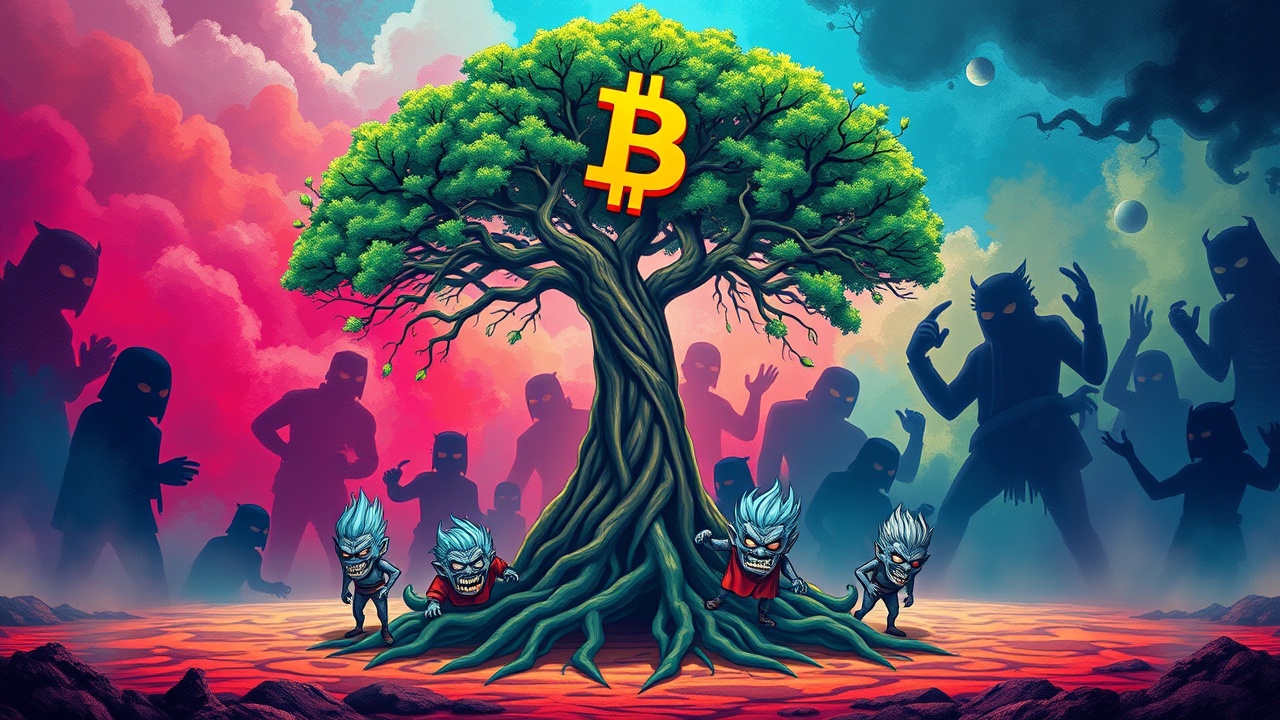Concerns Over the Taproot Upgrade
A prominent Bitcoin developer has expressed concerns regarding the Taproot upgrade, indicating that its creators overlooked significant vulnerabilities related to social interactions on the network. Jimmy Song, a developer for Bitcoin Core, highlighted in a recent X video that the developers did not foresee the ways in which Taproot could be exploited, particularly by enabling the creation of Ordinals and BRC-20 tokens that have led to increased spam on the Bitcoin network.
“What they ignore is that Taproot had significant trolling value as the upgrade that Bitcoiners were placing their hopes in,”
emphasizing that the implications of this increased social attack surface were not considered in the upgrade’s design.
Criticism of the Upgrade
Song, who has previously described Ordinals as a “fiat scam,” criticized the upgrade, stating that it has not fulfilled its initial promises regarding enhanced privacy and security features. He pointed out that although Schnorr signatures and Script Paths Spend were introduced as improvements over traditional multisignature solutions, they have proven to complicate processes rather than simplify them.
“Bad user experience basically made it a non-starter.”
Community Division and Perspectives
The Taproot upgrade, which went live in November 2021 thanks to developers including Jonas Nick and Tim Ruffing, was initially proposed by Gregory Maxwell in January 2018. Its activation has sparked a broader dialogue among the Bitcoin community regarding the nature of transactions on the Bitcoin network.
The community appears divided; some members, including Adam Back and Luke Dashjr, argue that Bitcoin should prioritize its foundational purpose as a peer-to-peer cash system, as originally articulated by Satoshi Nakamoto. In contrast, advocates of the Taproot upgrade are utilizing it for various applications, such as creating Ordinals and Runes, and argue for a more inclusive approach to transaction validation, claiming that Bitcoin should not engage in censorship of any transaction type.
Recent Developments
A notable development occurred in June, when over 30 Bitcoin Core developers voted to eliminate the 80-byte limit on the OP_RETURN function, allowing for the storage of substantially larger on-chain content. This decision led to a surge in the adoption of Bitcoin Knots — an alternative implementation of Bitcoin software — the number of which has now soared from 67 nodes in March 2024 to over 7,112, comprising nearly 28% of the network.
Leonidas, a leader in the Ordinals movement, has indicated that his group might consider forking from Bitcoin Core if there is a move to censor non-financial transactions like Ordinals or Runes. While Jimmy Song remains cautious about the overall impact of Taproot, he maintains that the upgrade could still have positive implications for Bitcoin in the future, noting,
“Taproot can, of course, redeem itself.”
Economic Impact of Ordinals and Runes
In defense of the Ordinals and Runes applications, Leonidas claims that these innovations have generated over $500 million in transaction fees, enhancing Bitcoin’s security at a crucial time when concerns about the mining block subsidy are rising. Despite fluctuating revenue from inscription fees, which have swung from $3,060 to $537,400 in 2025, this is inconsequential compared to the peak of $9.99 million from Ordinals fees collected by miners on December 16, 2023.
Conclusion
As discussions continue within the Bitcoin community, the future impact and integration of the Taproot upgrade remain subjects of significant interest and contention.




